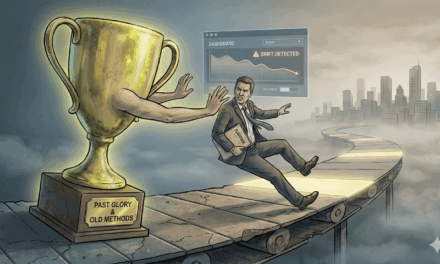
Grinding to the Emergency Room

When the Grind Catches Up: Lessons from the Emergency Room
I was in the emergency room twice a couple of weeks ago. I’ve been in a season of relentless focus, building initiatives, processes, and projections for the work I am so blessed to do. I love what I do, and I deeply cherish every company I have the privilege to work with. This work is the joy of my life. I’ve worked tirelessly to develop my abilities, and I’m grateful that God has blessed me with the capacity to drive profitability, book demos, and build meaningful strategies.
But here’s the truth: most underestimate the sheer effort required to keep the wheels turning—creating projections, managing pipelines, and guiding sales teams. It’s a constant process of thinking, rethinking, and refining. Along the way, I’ve learned that not everything works long-term. Some approaches are fleeting: they work for an hour, maybe a day, but rarely for a week or a quarter. And this trial, error, and repetition cycle finally caught up with me.
The Wake-Up Call
The first trip to the ER was terrifying. My blood pressure had skyrocketed to 204/160—a level considered stroke or heart attack territory. After weeks of dealing with high blood pressure and a rapid heart rate, I had ignored the signs. But when a thunderclap headache struck at 2 a.m., my wife insisted I go to the hospital. Unable to wake my three-year-old daughter to come with us, I drove myself alone into the night. A battery of tests, including a CT scan, revealed no immediate crises, but the fear of what could’ve been was undeniable.
Sitting alone in the hospital room, I realized how close I’d come to a breaking point. The thought that my next move could have been my last—or that I might be sidelined for days—hit me hard. But in that solitude, I wasn’t truly alone. Jesus was with me, and in that moment, I made a decision: something had to change.
Learning to Let Go
I’ve always struggled with delegation. I love my work and believe that no one can do it as well as I can. And if you’re reading this, chances are you might feel the same way about your work. But the reality is, trying to do it all myself was unsustainable. I had to start trusting others, teaching them to manage parts of the process, and letting go of the need to control every detail.
This doesn’t mean lowering standards. In fact, it’s about maintaining excellence by focusing on what only you can do while empowering others to handle the rest. Delegation is not about giving up control; it’s about creating room to grow—for yourself and your team.
The Second Trip to the ER
Despite my resolve to make changes, I found myself back in the ER later that same week. This time, it was a severe migraine paired with blood pressure over 200. That second visit made one thing clear: this wasn’t a one-off incident. My life—and my ability to provide for my family and work on what I love—was at serious risk.
This time, I struck back. I sought medical advice, got on prescribed medication, and overhauled my schedule to include better rest and stress management. These adjustments weren’t about slowing down the grind—they were about crushing it smarter. Whether it’s a moment of rest, focused work, or gratitude, I’m now committed to making every minute intentional.
Stop Wasting Time on the Trivial
Here’s the hard truth: if you’re burning the midnight oil aimlessly, scrolling through LinkedIn for likes while pushing real work to 11 p.m., stop it. Likes don’t pay the bills or create meaningful impact. Your time is too valuable to waste on what doesn’t matter. Focus on what you’ve been called to do. Stop chasing pity or validation and start pursuing purpose with discipline and clarity.
A Moment of Worship
During my second hospital visit, as they wheeled me into the CT scan room, I played worship music on my phone. If those were to be my final moments, I wanted them filled with faith and truth. By God’s grace, those weren’t my last moments. Instead, I was given another chance—a chance I don’t take lightly.
The Takeaway
This isn’t a call to slow down; it’s a call to focus. Work hard, yes—but work smart. Delegate where possible. Rest efficiently. Invest your time and energy in what matters most. Build a sustainable rhythm for yourself and your family.
And remember this: there will come a day when you’re no longer here. What will you leave behind? If the answer to that question doesn’t concern you, you might already be doing it right. But for the rest of us, this is our chance to make it count.
The ball is in your court. Be strong for yourself. Give yourself time. Build the wealth and health your family deserves. And as you crush every minute, don’t forget to live a life that matters.



































